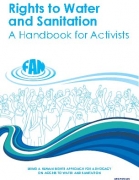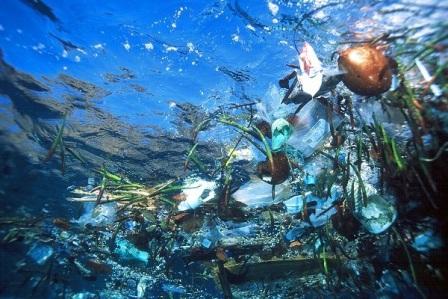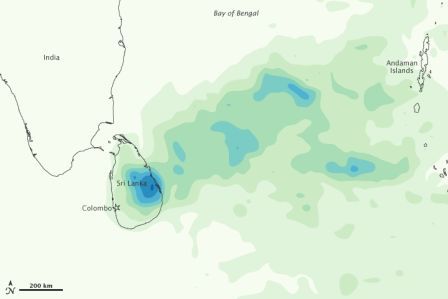/regions/world
World
Questions on the ‘Value’ of a river for Indians - A review of the book "Economics of River Flows" by Dr. Bharat Jhunjhunwala
Posted on 01 Feb, 2011 05:38 PMIn his last book, 'Economics of hydropower' Dr. jhunjhunwala comes to a conclusion that we have neglected some very important costs of hydropower, while overestimating its benefit.
Right to water and sanitation - A handbook for activists by Freshwater Action Network (FAN) Global
Posted on 31 Jan, 2011 10:11 PM With tihs, they can improve water and sanitation service regulation and provision at international, national and local levels. Directed primarily at community groups, human rights NGOs, rights-based development practitioners and aid workers, this handbook aims to strengthen human rights-based advocacy by providing innovative and practical suggestions that activists and organisations can use in their work. It also acts as a resource guide for finding further information.
With tihs, they can improve water and sanitation service regulation and provision at international, national and local levels. Directed primarily at community groups, human rights NGOs, rights-based development practitioners and aid workers, this handbook aims to strengthen human rights-based advocacy by providing innovative and practical suggestions that activists and organisations can use in their work. It also acts as a resource guide for finding further information.
Water and sanitation are essential for living a healthy life with dignity. However, around a billion people across the world lack access to a safe and sufficient water supply to cover their basic needs. Over 2.5 billion people lack access to adequate sanitation and nearly 1.2 billion face the indignity of open defecation every day.
The Millennium Development Goal (MDG) target to halve the proportion of people without sustainable access to safe drinking water and basic sanitation by 2015 is seriously off track, with sanitation severely lagging behind. For example, estimates suggest that at current rates of progress, sub-Saharan Africa will miss the MDG water target by about 25 years, while the sanitation target may not be reached until well into the 22nd century.
Ancient water and soil conservation ecosystems of Sri Lanka – Some aspects - Paper presented at the National Seminar on Water and Culture (2007)
Posted on 31 Jan, 2011 02:57 AMThis paper presents the ancient water and soil conservation eco-systems of Sri Lanka, based on ancient texts and their modern interpretations, and highlights the use of these water systems in ancient Sri Lanka and their present condition.
Yale University releases Environmental Performance Indices for 2010
Posted on 30 Jan, 2011 11:47 PMThis website by the Yale University provides information on the global and countrywise ratings for environmental performance in the form of Environmental Performance Indices (EPI) for different countries. The site also provides details of EPI scores for India in comparison with the average scores globally.
This index was developed from the Pilot Environmental Performance Index, first published in 2002, and designed to supplement the environmental targets set forth in the U.N. Millennium Development Goals (http://en.wikipedia.org/wiki/Environmental_Performance_Index)
Our Oceans - A plastic soup - Earth Institute
Posted on 28 Jan, 2011 05:07 PM Photo credit: cesarharada.com
Photo credit: cesarharada.com
2011 World Water Week Calls for Abstracts and Proposals
Posted on 21 Jan, 2011 05:39 PMContent and Image Courtesy: World Water Week
World Water Week is hosted and organised by the Stockholm International Water Institute (SIWI) and takes place each year in Stockholm. The World Water Week has been the annual focal point for the globe’s water issues since 1991.
Heavy Rains in Sri Lanka - Update from Earth Observatory
Posted on 20 Jan, 2011 01:48 PMSri Lanka’s government stated that the death toll from flooding had risen to 13, and officials were arranging food drops to hardest-hit areas in the east.

![]()
Compilation of 300 hands on field activities for community based adaptation
Posted on 20 Jan, 2011 01:42 PM
 This collection of CBA field activities began as a resource for online CBA students. However, as it grew, we decided that it was important to make it more broadly available to CBA development practitioners worldwide. The activities are organized in the following framework.
This collection of CBA field activities began as a resource for online CBA students. However, as it grew, we decided that it was important to make it more broadly available to CBA development practitioners worldwide. The activities are organized in the following framework.
2010: The year of climate records
Posted on 18 Jan, 2011 11:35 PMArticle Courtesy: Cognizant Reflections
Author: Sangeeta Deogawanka
The year 2010 has witnessed a few climate records that has mounted evidence of climate change the world over.
- It marked the end of the warmest decade since climate records were kept.
- It has been one of the three warmest years recorded, since 1850.
SRI - Less seeds, water , fertilisers lead to greater yields
Posted on 18 Jan, 2011 11:21 PMBHUBANESWAR, India, Dec 29, 2010 (IPS) - When French Jesuit priest and passionate agriculturist Henri de Laulanie developed the System of Rice Intensification (SRI) method of cultivation for Madagascar’s poor farmers in the 1980s, he probably had no idea that millions of farmers elsewhere in the world would one day benefit from it as well.